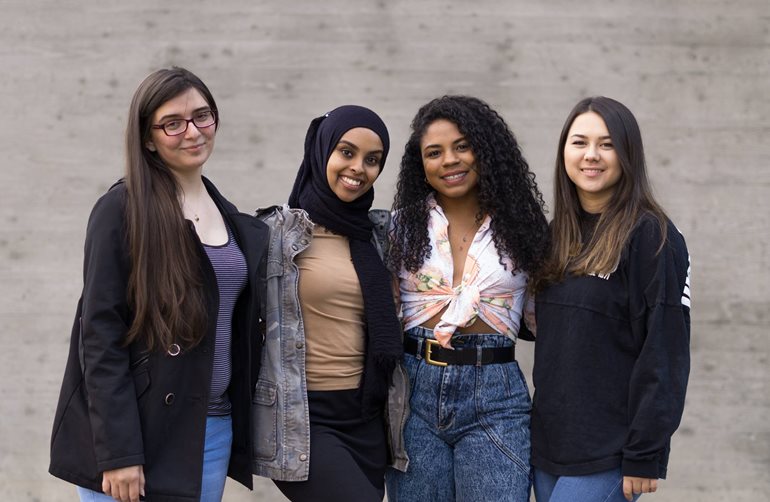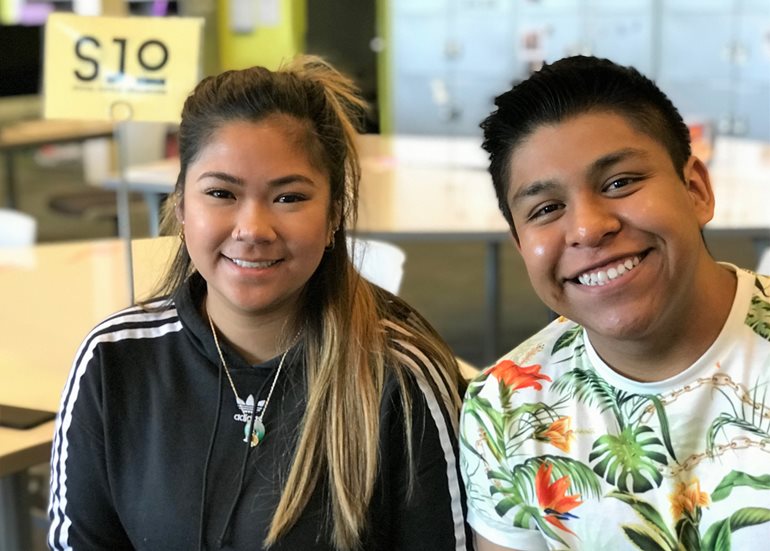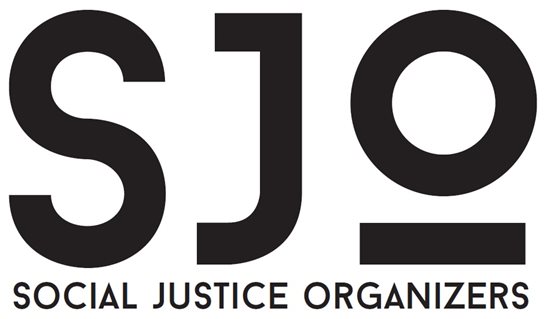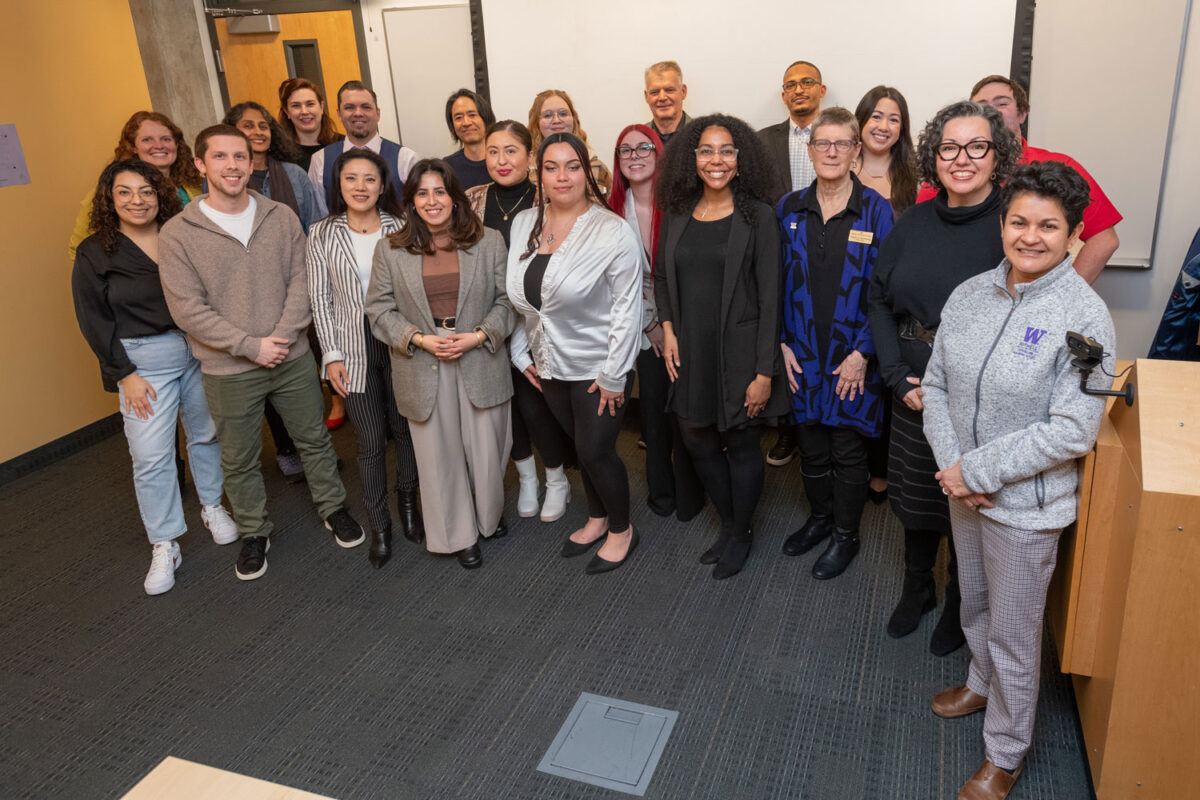
When Liza Boardman became a social justice organizer (SJO) in 2018 at the University of Washington Bothell, she organized one of the group’s first Dine-n-Dialogues on the topic of voting rights.
“Students really took the time to open up and share their opinions with the group as well as get to know the differing identities existing on our campus,” Boardman said. “Dialogues are critical, personal ways to better understand social justice, and students often take this time to be vulnerable about how bigger systems impact them.
“Being a part of moments like these are what make the SJO position worthwhile and so inspiring.”
For Boardman, a 2019 graduate in Law, Economics & Public Policy and in Global Studies, being an SJO was an opportunity both for personal growth and to make an impact on campus.
Do talk about religion and politics
“The connections, knowledge and confidence I gained throughout this period have been invaluable and unique,” Boardman said. “I was able to learn so much about my identity and what motivates me to incite change.
“Being a student can be a difficult path at times, and when you have an outlet to express yourself like the social justice organizers, self-growth and community building come naturally,” she said. “I now know that the SJO presence on campus provides a unique opportunity for students to interrogate the systems at work around them.”
Since the positions were established in 2014, SJOs have been promoting a campus culture that celebrates diversity. Through the Dine-n-Dialogue series, film showings and other events, the SJOs foster awareness of race, gender and other issues related to social justice.
Don’t talk about religion or politics is the old advice to avoid conflict. At UW Bothell, students are encouraged to engage in sensitive discussions, guided by SJOs who are trained to create an environment where students feel comfortable.
Real life relevance

SJOs are paid student-staff positions within the Department of Student Engagement & Activities. Each year, four are hired in the spring. The 2019-20 SJO team is made up of Kelly Pham, Jorge Azpeitia, Gurleen Mann and Nomungerel Natsagdorj.
“I feel social justice issues are relevant to what I like talking about and learning in classes, especially diversity and culture,” said Azpeitia, a Media & Communications Studies major who plans to graduate in 2021. “In the climate that we have in society today, I feel it’s important to tackle those issues.”
Azpeitia said he’d like to talk about how religious cultures deal with the LGBTQ community. Pham said she’d like to discuss ways to encourage busy 19-to-22-year-olds to vote. She’d also like to discuss immigration rights, in light of heightened raids by Immigration and Customs Enforcement agents.
“I hope to gain more understanding of other people in a way that our country at the moment lacks,” said Pham, who plans to major in Community Psychology and graduate in 2022. “I want to be able to understand other people’s opinions, where they stand and how they got to that point.”
Starting with orientation
In the summer, SJOs help with first-year student orientations. They conduct Identity, Dialogue, Expression and Action (IDEA) sessions to introduce students to resources, including the Student Diversity Center and the Husky Pantry.

“The IDEA sessions are aimed at inviting students to take ownership of their experience and get involved on campus when they start here,” said Benjamin Lopez, the SJO program manager.
Through the year, SJOs hold their Dine-n-Dialogues about every other week. An average of 20 students meet in the IDEA Project in Founders Hall (UW1-161) or in the Activities & Recreation Center for a meal and dialogue. Last year’s voting rights dialogue also was the most memorable one for Rukeya Yassen, another one of the SJOs, along with Megan McDermott and Bella Dumas.
Other topics have included sexism in the media, the Second Amendment right to bear arms and First Amendment protection for freedom of religion. One larger event was a showing of the movie “The Hate U Give,” followed by a discussion.
In the middle, positively
Lopez sees his role as a coach who trains the SJOs as facilitators. He introduces or interjects counternarratives, asking students to recognize other points of view.
“The subjects we talk about are often controversial, or people have very strong opinions,” Lopez said. “Our goal in the dialogues is not to figure out who’s right or get them to think the same way that we think.”
The goal, Lopez said, is “to hold both ends of the spectrum and find ways to deepen our understanding together.”
SJOs observe the boundary between discussing issues and promoting a particular policy or politician. They focus on helping students make their UW Bothell experience what they want it to be in a positive way, Lopez said.
“College is all about learning and growing,” he said. “Our space is open and accessible to everyone to participate. We don’t want it to be an echo chamber.”



